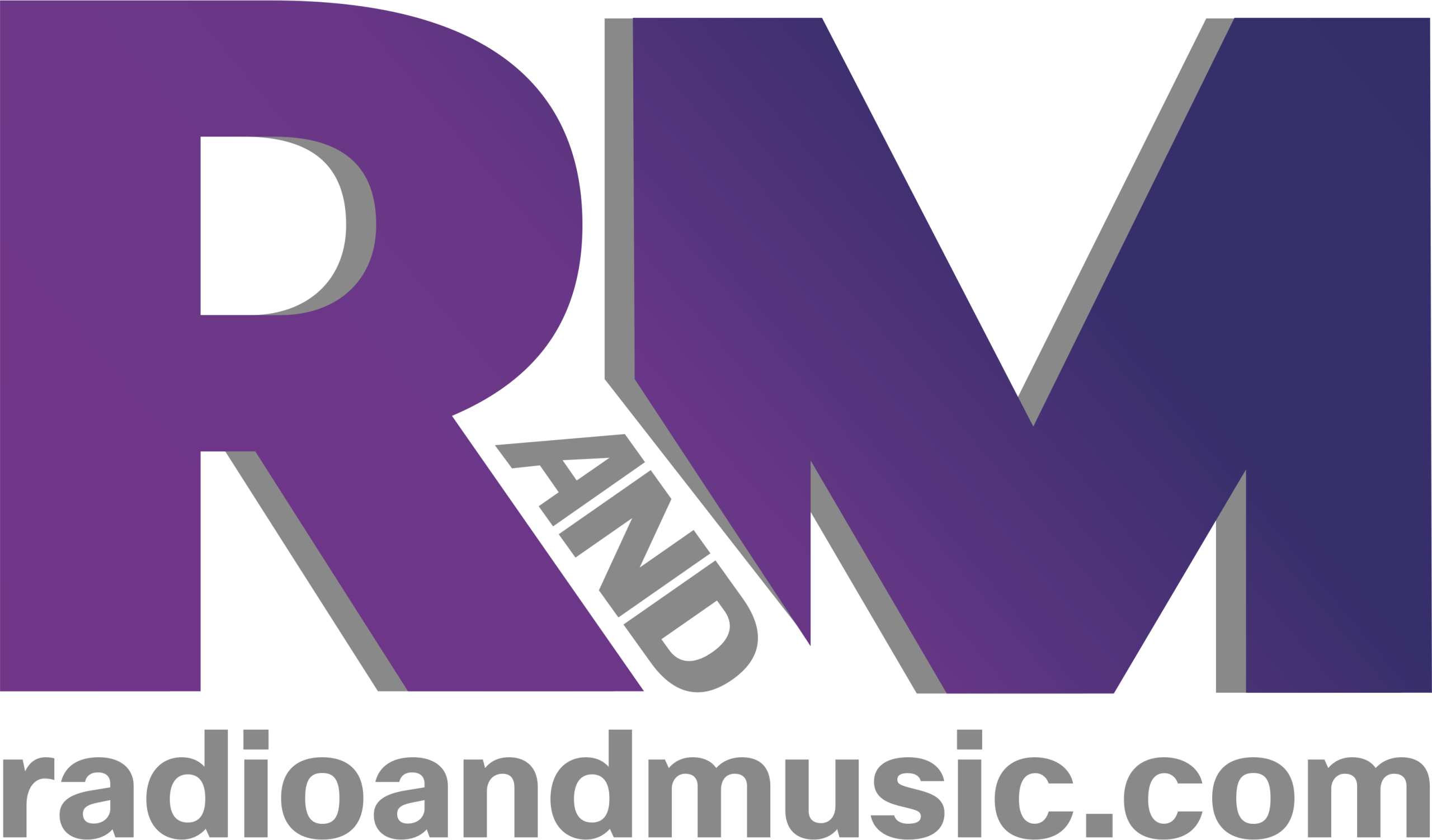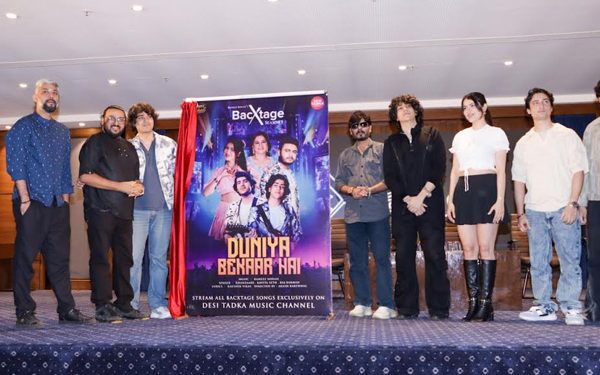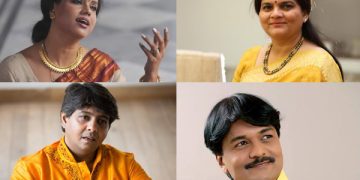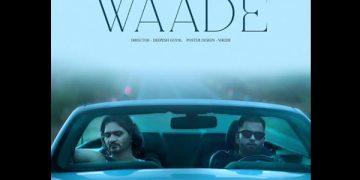MUMBAI: UK pubcaster the BBC’s DG Mark Thompson has announced a deeper commitment to arts and music on the BBC, with a range of initiatives aimed at supporting cultural Britain and better serving the public.
He pledged that the BBC would:
* Create a new Arts Editor role for BBC News, which will help ensure that appropriate focus is given to arts events and stories on a day-to-day basis.
* Demonstrate a new energy in working with partners, creating a BBC arts board to improve the gestation process for great content ideas and partnerships.
* Create stronger partnerships that make the most of the potential of the digital world, with the announcement of three new projects in development. A partnership with the Public Catalogue Foundation could enable the public to view every one of the UK’s 200,000 publicly-owned paintings online.
* Deliver big, bold content ideas, including a pan-BBC Poetry season which is one of the highlights of an overarching language theme in 2009.
Thompson says, “The BBC has a special responsibility to support and enable the cultural life of Britain, particularly though our investment in arts and music programming.
“Today we are not only reaffirming our commitment to arts, but we’re announcing a series of measures that will put this relationship on an even stronger footing. Through innovative new partnerships, I believe the BBC can deliver big, bold arts programming that is accessible, distinctive and enjoyable.”
Partnerships for the digital world: Partnerships he notes are a vital way for the BBC to connect with the arts and music communities which in turn can benefit the whole arts community.
Building on the BBC’s many existing partnerships – with organisations like the UK Public Library Sector, the National Theatre, the Royal Opera House
, the Scottish Arts Council and the Manchester International Festival – the BBC announced plans to explore a series of new partnerships focused particularly on getting content online.
One project in development with the Public Catalogue Foundation could enable the public to view every one of the UK’s 200,000 publicly-owned oil paintings, 80 per cent of which are currently hidden away.
The aim is to establish a website on bbc.co.uk, called Your Paintings, where the public can view and find information on every oil painting in public ownership. The benefits to the public at large and the participating public collections will be substantial.
The Public Catalogue Foundation is a registered charity that was launched in 2003. It is 30 per cent of the way through cataloguing the UK’s national collection of oil paintings and the partnership is now looking at how it can best make those images accessible to the general public. They should be online by the end of 2010, with the joint aim to publish every painting by 2012.
The BBC is also exploring ideas with the Arts Council, which could give the public free online access to archive arts content.
One such scheme could make the Arts Council’s vast film collection – dating back to the Fifties and covering different arts genres from documentary to performance – available for the public to view online for the very first time.
The project will also explore the possibility of aggregating archive material from the Arts Council with related BBC arts archives and those from other major content holders.
The BBC also announced that BBC Radio 4 is working with the British Museum on a complementary online project for its series, A History Of The World In 100 Objects.
The heart of the project is a 100-part Radio 4 broadcast series telling the history of the world through 100 objects from the British Museum’s collection, narrated by Director of the British Museum, Neil MacGregor.
The series is due for transmission in February 2010 and the objects will be simultaneously displayed in the galleries of the museum as the series airs.
The partnership is working to provide a significant online element, which will enable users to explore the objects beyond transmission of the programmes. It is also developing a complementary project to the series, which could connect other museums with the BBC across the nations and regions of the UK.
New Arts Board: Further the BBC has recognised the need to simplify the process of getting arts and music content commissioned and available across its television, radio and online channels.
Thompson would be setting up a pan-BBC arts board, sponsored by Director of Vision, Jana Bennett, and Director of Audio and Music, Tim Davie, consisting of senior arts and creative leaders across the BBC and managed by a new arts coordinator.
The aim of the board is to join up and maximise the programming that the BBC delivers in the arts and music space through better planning, creativity and collaboration across the whole of the BBC’s arts family. This will include regular input from external experts and stakeholders as needed.
Arts Editor: Thompson also pointed to the huge commitment the BBC already has to the arts beyond its scheduled hours of programming. BBC News’ Arts and Culture team on television and radio cover the latest national and regional developments in the arts world.
To reinforce the reporting of arts at the heart of the BBC website, and to offer a complete service for arts lovers, BBC News has launched an Arts and Culture section of the BBC News website.
BBC News will also be creating the new role of Arts Editor to add further weight to coverage of arts and culture in its news programming.
The Arts Editor will be the face for BBC Arts news coverage and will ensure that the appropriate focus is given to arts events and stories in Britain. This role will lead the strong existing reporting team across TV, Radio and online.
Big, bold content: The BBC plans to increase the reach and range of output. Today it unveiled a pan-BBC Poetry season, with programmes and content across BBC Two, BBC Four and CBeebies, BBC Radio 4 and online.
Coverage on BBC Two will include an authored documentary from Simon Schama on John Donne and a film by Armando Iannucci on Milton.
There will also be Lifelines, a series where four public figures take a journey of discovery into the poems that inspired them. Arena will screen a programme on TS Eliot and there will be a nationwide poetry recital competition for primary schools, Off By Heart.
On BBC Four, Owen Sheers explores six great British works, Ian Hislop welcomes the new Poet Laureate, Simon Armitage goes in search of Sir Gawain And The Green Knight and there’s a documentary about the world’s longest-running poetry programme, Radio 4’s Poetry Please, among other programmes. The BBC will be working with external partners, including the Poetry Society.
Also in 2009, BBC Radio 3 and Radio 4 will mark the 200th anniversary of the birth of Alfred Lord Tennyson.
The BBC will be celebrating literacy in all its forms in the Why Reading Matters season on BBC Four. At the heart of this season is Just Read, in which children’s laureate Michael Rosen tries to instil a passion for books into reluctant young readers. There’s also a documentary on Why Reading Matters and what effect it has on the brain, and how Reading Made Us Modern.
Radio 4 will bring listeners the Complete George Smiley – a dramatisation of John Le Carre’s remarkable series of novels.
BBC Two will also be launching The Romeo Project, which will see two schools brought together to perform Romeo And Juliet in a prestigious theatre, learning to embrace and enjoy the words of the Bard.
The BBC will also be engaging young people in the art of public speaking with a search to find Britain’s best young speaker in The Speaker on BBC Two while the BBC’s creative director, Alan Yentob, will be exploring the art of public speaking for BBC Two, from Aristotle to Barack Obama.











